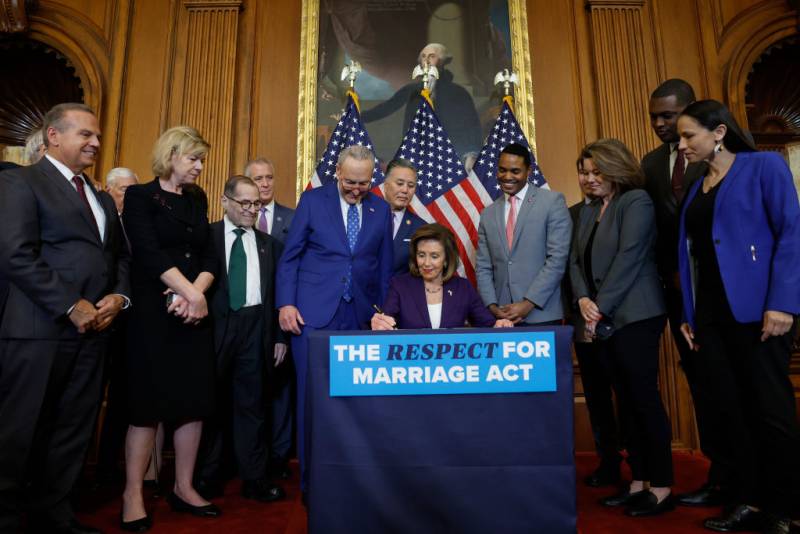The measure was first born out of the House this summer following the Supreme Court’s decision in Dobbs v. Jackson, which held that access to abortion was not a constitutional right. Marriage rights advocates and Democrats expressed concern that the reversal could call other decisions regarding civil liberties into question, including marriage equality.
In his concurring opinion of the Dobbs case, Justice Clarence Thomas made a point to say that the landmark 2015 case that legalized same-sex marriage, Obergefell v. Hodges, rests on the same legal principles that underscored Roe.
While no case challenging the right to marry has yet made it to the Supreme Court, advocates feared Thomas was setting the stage for Obergefell‘s reversal.
The legislative victory comes as somewhat of a surprise
House Democrats brought up the legislation months before the midterm election with little to no expectation that it would become law so quickly, but rather to put Republicans on record on a social issue that has the vast support of American society. But when a notable number of House Republicans joined with Democrats to pass the bill, it ultimately forced the Senate to act on legislation that Democratic leaders did not initially have on their Fall agenda.
In November, after the dozen Republican senators voiced support for the legislation in a vote that ended debate on the measure, it permitted the legislation to advance toward a final vote in the upper chamber, which was held last week.
As vice president, Biden publicly broke with then-President Barack Obama to voice support for same-sex marriage rights in 2012. Obama ultimately joined him.

